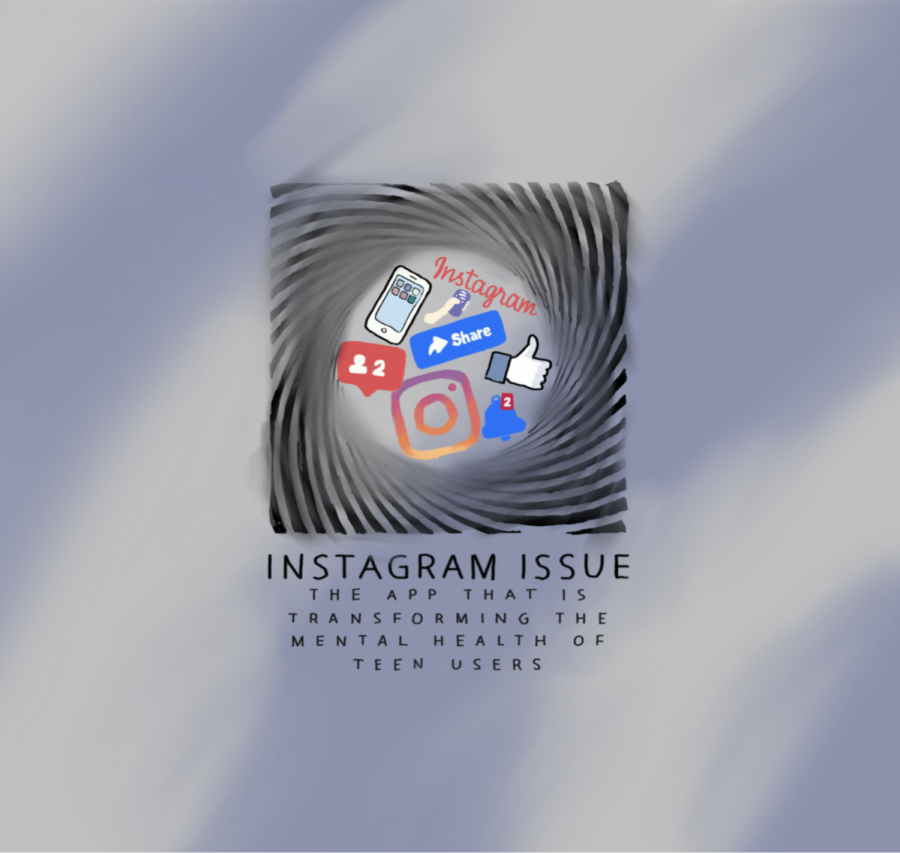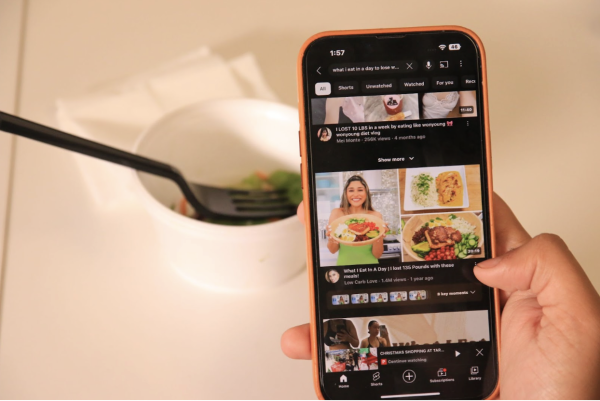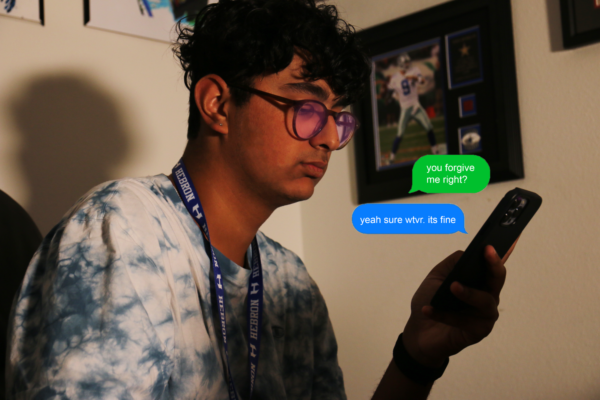Opinion: The Instagram issue
Body image issues. Eating disorders. Suicidal thoughts.
People have mixed opinions on the effects of social media, but we can agree that Instagram has been a cause of the mental health decline among teenagers. And yet, the company knew of its destructive capabilities all along.
At the beginning of September, the Wall Street Journal released a report publishing documents that prove Instagram’s parent company, Facebook, was aware of its negative effects on peoples’ mental health. The documents included three years of internal studies done by Facebook which prove Instagram is harmful to young consumers, which make up about 26% of total users. One slideshow included in the report stated, “32% of teen girls said when they feel bad about their bodies, Instagram made them feel worse.”
Although aware all along, Facebook publicly downplayed the effects of Instagram until the report was published. At one point, Facebook CEO Mark Zuckerburg even said he believes connecting with people through the use of social media has positive effects on the mental health of users. While this thought cannot be denied either – I can admit that social media applications have made me feel more connected to others – it makes me uncomfortable that Zuckerburg wouldn’t at least mention the studies and information the company discovered long ago.
Since the moment of receiving my first cell phone, and the shimmering gleam in my eyes when I downloaded social media, my life has drastically changed. And this was while standing in a fifth grade classroom. Obviously, I cannot attribute all of this change to the implementation of social media in my life, but that has been part of it. From a young age, I got used to seeing ‘perfect’ celebrities and people my own age who I learned to compare myself to. These images on the rectangular block of aluminum in my hands taught my younger self that I could change things about myself to get validation.
Another aspect that bothers me about social media is my anxiety when I see what my peers are up to. I severely struggle with the fear of missing out, and every time I see posts of events my friends are attending, I immediately want to attend and feel included. I never feel happy for them or just experience a neutral feeling of, “oh, glad they’re having fun” – it is always negativity. And yet, even while experiencing these negative feelings associated with social media, I can never pull away. Even when I know I will experience the feeling of being left out, I continue to look.
After discovering Facebook’s knowledge of issues with Instagram, I was reminded of the feelings I get when I browse the app. The tendency given by Instagram users to only post the perfect moments and Photoshopped images, which I even participate in, has had great effects on the ways I and many teenagers view the content. I want fifth graders to be able to look at funny images and memes of their friends without having to change their eating habits to conform to the social norm of the ‘perfect’ image of celebrities flooding their timeline.

Senior Emma Short is the editor-in-chief and this is her third year on staff. She is also an advanced technician with Hebron Theatre and spends many...













![Junior Chase Harris watches JJ Hatcher’s family being recognized on the field. Harris and Hatcher were close friends, playing baseball together since they were kids and playing football together in high school. “[The game] makes me sad,” Harris said. “But it definitely feels really good because [JJ] will be there in spirit and be with us, cheering us on and running alongside us.”](https://www.hebronhawkeye.com/wp-content/uploads/2023/08/IMG_2267.JPG_YES-600x400.jpg)